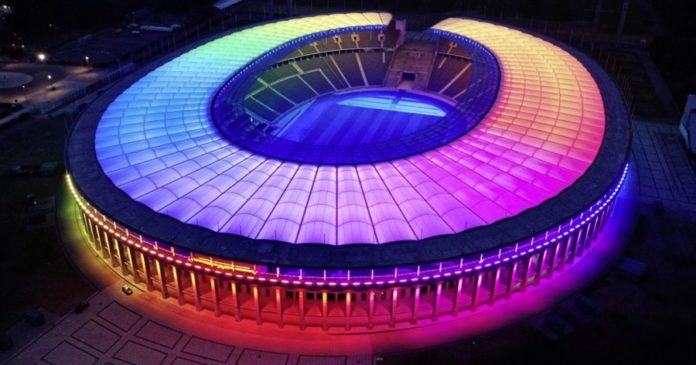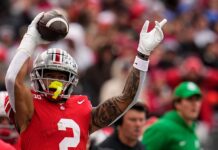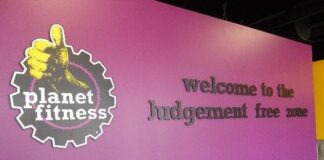
SITTING in Output Café on Belfast’s Lisburn Road a few weeks back, Jane Adams takes a quick glance left and right before leaning in. Spatial awareness has always been a strong suit, going back to when her talent would illuminate fields across Antrim and Ireland.
There is no helmet or hurl in hand this time around, though, as the former Antrim camogie star is surveying her surroundings in case any of those involved in the story she is about to tell are nearby.
Next Friday, Jane marries Niki McKnight. It will be a day of celebration, one the couple and anybody lucky enough to be inside the Merchant Hotel will never forget.
But her life outside of sport was not always so joyous.
Confident the coast is clear, Jane goes back to when she was “18 or 19”. Unwilling to accept that she was gay, different boyfriends came and went. When bringing one particular relationship to an end, she revealed the reason why.
Later that day, his parents marched down to the Adams family home and told her mum and dad: “Jane has something to tell you.”
“I was like ‘no… I don’t’,” she recalls, cringing at the memory.
“We were all there sitting around the table in our house, his mummy and daddy, his brothers, my mummy and daddy. It was awful. My daddy told them to get out.
“He knew, but he also knew I didn’t want to talk about it. He could see how I was feeling. As soon as they were away, he just said to me – ‘you go on upstairs there love, it’s okay’.
“And I did, because I wasn’t ready to have that conversation.”
That toe-curling confrontation at the dining table was over 20 years ago. Jane Adams is 40 now, but it wasn’t until meeting Nikki in 2017 that she finally felt able to accept herself, and her sexuality.
She speaks proudly of the unwavering love received not just from family members, but also from friends and team-mates who respected her right to process her own feelings and make her own decisions, in her own time.
“Society needs to realise that everybody is their own person, with their own personal circumstances, and they can vary a lot from one to the next,” she said.
“Your story is not the same as my story.”
Gaelic football referee David Gough tapped into that theme too, highlighting the lack of “openly gay” males across elite sport in Ireland.
“I have a list the length of my arm of people who contacted me over the years whose brother, son or partner died by suicide because they weren’t able to come out to their GAA team-mates,” he said in an interview with The Irish Independent earlier this week.
“There are loads of gay male inter-county footballers and hurlers, and soccer and rugby players. I know them. But they are not willing to share their stories because they are afraid. Most don’t want the media scrutiny and are unsure how fans or opponents will respond. It’s a sad indictment of where we are in sport in Ireland.
“They are asking managers, team-mates and, in professional sports, their agents who are all from the straight community, and who themselves fear what may happen if their player comes out.
“The GAA is an exception in that it is changing at a rapid pace over the past 24 months. We see it at my level, but has it trickled down to the clubs or the grassroots level? Are they willing to have those difficult conversations? I don’t see it yet.”
Question marks also remain over how equipped sports clubs in Ireland are to handle any situations which may arise.
Speaking at a webinar on Diversity and Inclusion at DCU last November, Morgan Crowe of Leman Solicitors said that just 15 per cent have a “fit-for-purpose” grievance procedure to deal with complaints of homophobia, biphobia or transphobia.
That appears an alarmingly small figure – and what kind of signal does it send? Not one of serious intent, that’s for sure. This is why the messaging surrounding the issues of inclusion and acceptance are of utmost importance if society is to bring everybody along as one.
Just look, for example, at the spectacular own goal Uefa conjured up ahead of Wednesday’s Euro 2022 meeting between Germany and Hungary.
With the eyes of the world upon them, they rejected a request by Munich mayor Dieter Reiter for the outside of the Allianz Arena to be illuminated in the colours of the rainbow.
It was proposed as a show of support for LGBTQ+ communities and came in light of a new law passed by Hungary’s government banning the depiction or promotion of homosexuality and gender change to those under 18. The ruling was added onto the end of an updated child abuse bill, thus conflating homosexuality with paedophilia.
In a statement released on Twitter, in which its logo has been updated to show the rainbow flag, Uefa later insisted it was “proud to wear the colours of the rainbow”. Their actions, however, suggested they were only happy to do so until in the company of those who might not appreciate the sentiment.
That kind of spinelessness, that lack of solidarity, remains a major stumbling block to opening doors the further down the road we go.
The reason Jane Adams decided to speak publicly about her own journey is because she knows there are others who aren’t as fortunate – people who don’t have the support network, who don’t feel they have anybody to turn to if, or when, they want to talk.
In the likes of Jane, David Gough and Donal Og Cusack, the GAA is blessed to have such articulate voices promoting acceptance and empathy. It is now up to everybody else to follow their lead.








